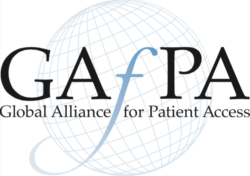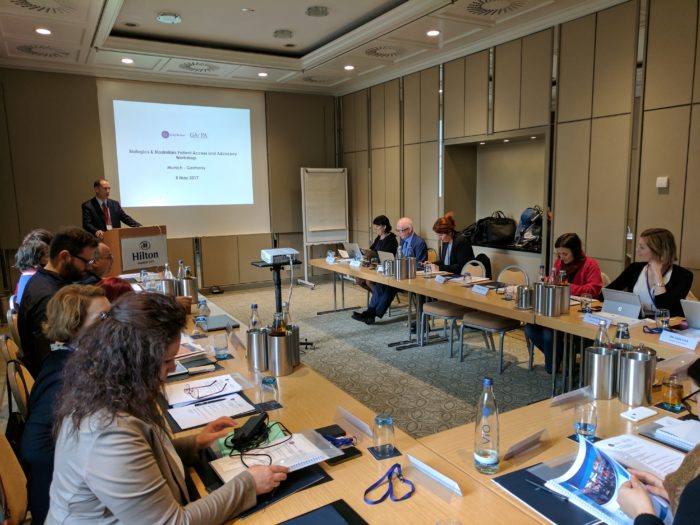Access Issues Loom Large at Munich Workshop on Biologics and Biosimilars
May 10, 2017
By Brian Kennedy, Executive Director of the Global Alliance for Patient Access

When should patients switch from one medicine to another for non-medical reasons? How can pharmacovigilance processes successfully monitor patients’ reactions to a medicine? And, perhaps most importantly, how do we ensure that patients are informed participants in decisions about their medication?
These questions and others framed a May 4-5 advocacy workshop in Munich, hosted by the Global Alliance for Patient Access and the European Federation of Crohn’s and Ulcerative Colitis Associations (EFCCA).
Workshop Details
Patients, advocates, physicians and health care professionals from 14 different European countries provided their perspectives on the use of biologic and biosimilar medicines. Delegates also shared experiences from the practice of medicine in their own countries. Despite most participants coming from European Union member states, their accounts presented diverse experiences with biologic and biosimilar medicines. The divergence highlighted an important reality: Many questions about medicines are still answered at a national level.
Thus, GAfPA encouraged patient advocates to have conversations with policymakers at both a national and an EU level. GAfPA also equipped delegates with suggestions of how to maximize their advocacy. Several groups pointed to effective techniques they have used, including: successful legislative action in Cyprus, roundtables with key policymakers in Greece and a white paper developed by groups in the Czech Republic. Delegates welcomed the opportunity to learn from each other’s successes.
Access and Advocacy
On one point in particular, the delegates were unanimous. Their voice can be stronger if they work together, particularly when patient groups join forces with organizations of physicians and health care professionals. Delegates also agreed that patients, alongside their physicians, must be central to any treatment decision. Excluding patients introduces the risk of undermining the trusted relationship between patients and physicians, which is fundamental to quality health care.
Finally, GAfPA heard concerns that access to biological medicines remains poor in some parts of Europe. These concerns were backed up by the findings of an interim EFCCA study on access to innovative treatments in seven of its member countries. The study found wide variety in the number of inflammatory bowel disease patients who can access biological treatments, sometimes varying even among regions of the same country. EFCCA is undertaking another phase of this research while GAfPA continues to support patient advocacy for greater access to life-changing treatments.

Upcoming Workshops
This event built on previous collaborations between GAfPA and EFCCA, including advocacy workshops in Barcelona and Brussels in 2016. GAfPA will hold two additional access and advocacy workshops on biologic and biosimilar medicines in 2017 – in Warsaw on September 15-16 and in Rome on November 10-11. Further details will be available soon.
Tags: Biologics, InnovationCategorized in: Blog



